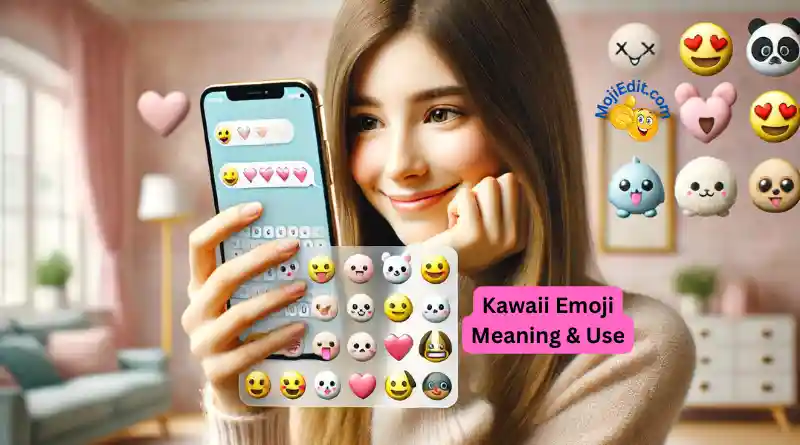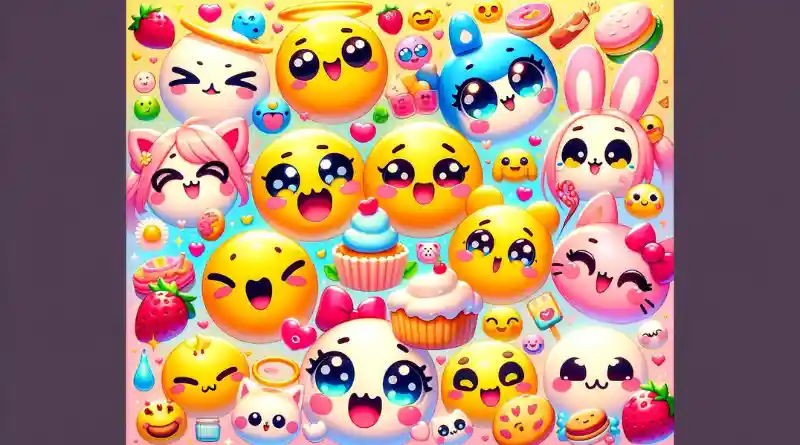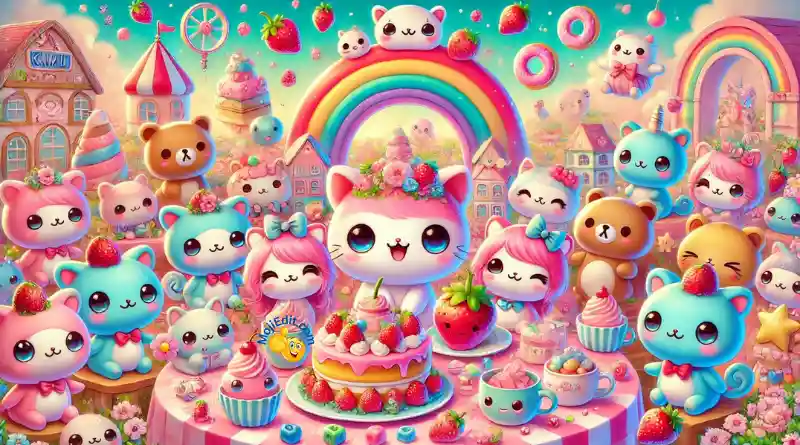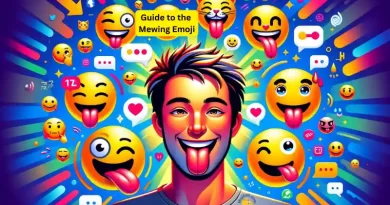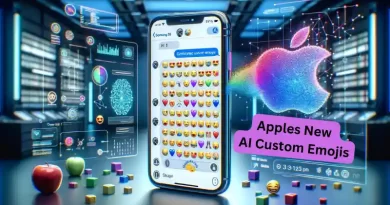Kawaii Emoji Evolution 🐱: De Japón a Sensación Global 🐰
What is a Kawaii Emoji? 🤔
Kawaii emojis are the epitome of cuteness, rooted deeply in Japanese pop culture. The term “kawaii” itself translates to “cute,” and these emojis are designed to convey an endearing and playful innocence. Let’s explore more about these adorable icons and their impact on digital communication.
Characteristics of Kawaii Emojis
Exaggerated Features 😍
Kawaii emojis often feature large, expressive eyes and tiny, simple mouths. These exaggerated features enhance their cuteness and make them incredibly endearing.
Bright Colors 🌈
Pastel and bright colors dominate the kawaii emoji palette, adding to their playful and cheerful appearance.
Simple Designs ✏️
Kawaii emojis are characterized by their minimalistic yet impactful designs, focusing on clear and cute expressions.
Playful Themes 🎠
These emojis often depict animals, food items, and everyday objects in a whimsical and cute manner.
The Evolution of Kawaii Emojis 📜
Origins of Kawaii Culture 🐣
The term “kawaii” first emerged in Japan in the 1970s, signifying a cultural shift towards cuteness. Initially, it began with the “An-An” and “Non-no” magazines promoting kawaii handwriting styles, characterized by rounded, playful lettering. This cute aesthetic quickly spread to various aspects of Japanese culture, including fashion, toys, and entertainment (Lord Decor).
The Birth of Emojis 📱
The journey of emojis began in 1999 when Shigetaka Kurita, a Japanese designer working for NTT DoCoMo, created the first set of 176 emojis. These early emojis were basic, pixelated images designed to add emotional nuance to text messages. Inspired by manga (Japanese comic books) and kanji characters, Kurita’s designs included simple smiley faces, corazones, and other everyday symbols. This was the inception of integrating kawaii aesthetics into digital communication (Lord Decor).
The Rise of Kawaii Emojis 🌸
As mobile technology advanced, so did the complexity and variety of emojis. The introduction of smartphones and the increasing popularity of social media platforms fueled the demand for more expressive and diverse emojis. The Unicode Consortium, the organization responsible for standardizing emojis across different platforms, began incorporating more kawaii elements into their designs. This included the use of bright colors, exaggerated features, and whimsical themes, all hallmarks of kawaii culture.
Global Popularity 🌍
While kawaii culture and emojis originated in Japan, their universal appeal quickly spread worldwide. Today, kawaii emojis are a global phenomenon, used by people of all ages and cultures to add a touch of cuteness to their digital communications. Platforms like Instagram, Xy TikTok have embraced these emojis, making them an integral part of online interactions (Emojiguide) (KawaiiTherapy).
Milestones in Emoji History 📅
- 1999: Shigetaka Kurita creates the first set of 176 emojis.
- 2010: Unicode Consortium standardizes emojis, allowing for cross-platform usage.
- 2015: The “Face with Tears of Joy” 😂 is declared the Word of the Year by Oxford Dictionaries.
- 2019: Unicode introduces more inclusive emojis, including various skin tones, genders, and disabilities.
Future of Kawaii Emojis 🚀
The future of kawaii emojis looks promising, with continuous updates and additions by the Unicode Consortium. As digital communication evolves, so will the emojis we use, becoming even more expressive and inclusive. The blend of technology and cultural trends ensures that kawaii emojis will remain a beloved part of our online language.
Popular Kawaii Emojis 🎉
Face Emojis 😊
- 😇 Smiling Face with Halo
- 😊 Smiling Face with Smiling Eyes
- 🥺 Rostro suplicante
Emojis de animales 🐾
Emojis de comida 🍓
- 🍓 Strawberry
- 🍭 Lollipop
- 🍰 Shortcake
Usage of Kawaii Emojis 📱
Kawaii emojis are widely used across messaging apps, social media, and online platforms to expresar emociones in a cute and light-hearted way. Their universal appeal has made them popular globally, not just in Japan.
History of Kawaii Emojis 📜
Kawaii culture has a rich history that dates back to Japan in the 1970s. It began with the rise of kawaii handwriting, a style characterized by rounded, bubble-like letters. This style soon evolved into the broader kawaii culture, encompassing fashion, toys, and even food.
The introduction of emojis in the late 1990s by Shigetaka Kurita, a Japanese designer, marked a significant milestone in digital communication. These early emojis included simple, pixelated images of faces, hearts, and everyday objects, which were influenced by the kawaii aesthetic. As mobile technology advanced, so did the design and variety of emojis, integrating more kawaii elements over time.
Using a Kawaii Emoji in Texting 💬
Kawaii emojis have revolutionized how we communicate digitally. They bring an extra layer of emotion and fun to our texts, making conversations more engaging and expressive. Here’s a closer look at how you can use these adorable icons in your messages.
Enhancing Emotional Expression 🥰
Kawaii emojis are perfect for conveying a wide range of emotions. For example, the 🥺 Pleading Face can express a sense of longing or a de corazón plea, while the 😊 Smiling Face with Smiling Eyes can show genuine happiness. These emojis help add depth to your messages, making them more relatable and personal.
Texting Combos Examples 📲
Combining kawaii emojis can create even more expressive and fun messages. Here are some popular examples:
“Just got home” 🏠
- Emoji Translation: Just got 🏠️.
- Emoji Sentence: Just got 🏠️, thank you for spending time with me today.
- Breakdown: The 🏠 House emoji adds a cute touch to the statement.
“Don’t cry over spilled milk” 🛑😢🥛
- Emoji Translation: 🛑😢🥛.
- Emoji Sentence: It’s a bummer you missed that part of the exam, but 🛑😢🥛 anymore, the best thing you can do is to learn from your mistakes.
- Breakdown: A combination of the 🛑 Stop Sign, 😢 Crying Face, and 🥛 Glass of Milk emojis.
“One day at a time” ⬜⏰
- Emoji Translation: ⬜ day at a ⏰.
- Emoji Sentence: Do what you can do today, you can’t solve all your problems in one day, take things ⬜ day at a ⏰.
- Breakdown: A mix of the ⬜ White Large Square and ⏰ Alarm Clock emojis.
“There’s plenty of fish in the sea” 🎣🌊
- Emoji Translation: There’s plenty of 🎣 in the 🌊.
- Emoji Sentence: I am sorry your boyfriend broke up with you, but don’t worry, there’s plenty of 🎣 in the 🌊.
- Breakdown: A combination of the 🎣 Fishing Pole and 🌊 Water Wave emojis【9 (Emojiguide)
Creating Unique Emoji Phrases 🌟
Get creative by mixing and matching kawaii emojis to form unique phrases. Here are a few ideas to get you started:
- “Stay positive” = 🌞😊
- “Feeling sleepy” = 😴💤
- “Let’s celebrate” = 🎉🥳
Using kawaii emojis in your texts not only makes your messages more visually appealing but also adds a layer of fun and creativity. These little icons can turn a plain text into an expressive and engaging conversation.
Creating Unique Kawaii Emoji Combinations 👫
Combining emojis creatively can enhance your texting experience, making your messages more engaging and expressive. Kawaii emojis, with their adorable and playful nature, are perfect for creating unique emoji combos. Here are some examples and ideas to inspire your next text:
Encouraging Combinaciones Emoji 💪
“Don’t Cry Over Spilled Milk” 🛑😢🥛
- Emoji Translation: 🛑😢🥛
- Emoji Sentence: It’s a bummer you missed that part of the exam, but 🛑😢🥛 anymore, the best thing you can do is to learn from your mistakes.
- Breakdown: This combination uses the 🛑 Stop Sign, 😢 Crying Face, and 🥛 Glass of Milk emojis to convey the classic saying, encouraging a positive outlook.
“One Day at a Time” ⬜⏰
- Emoji Translation: ⬜ day at a ⏰
- Emoji Sentence: Do what you can today; you can’t solve all your problems in one day. Take things ⬜ day at a ⏰.
- Breakdown: This combo uses the ⬜ White Large Square and ⏰ Alarm Clock emojis to remind someone to take things slowly and manage their time wisely.
Life Advice with Emojis 🧠
“Don’t Play with Fire” ❌▶️🔥
-
Emoji Translation: ❌▶️🔥 or you’ll get 🔥
-
Emoji Sentence: I hope you will rethink your actions; impulsive decisions might result in your downfall, ❌▶️🔥 or you’ll get 🔥.
-
Breakdown: This saying is translated using the ❌ Cross Mark, ▶️ Play Button, and 🔥 Fire emojis to offer a cautionary piece of advice【9†s (Emojiguide)### “Head in the Clouds” ☁️🙆♀️☁️
-
Emoji Translation: ☁️🙆♀️☁️
-
Emoji Sentence: You need to face your problems and stop dreaming about what cannot happen; your ☁️🙆♀️☁️.
-
Breakdown: This combo uses the ☁️ Cloud and 🙆♀️ Person Gesturing OK emojis to express that someone is not being realistic.
Love and Relationships 💖
“I Love You” ❤️➡️👤
- Emoji Translation: I ❤️ ➡️ 👤
- Emoji Sentence: I ❤️ ➡️ 👤 you so much, and I am happy you are in my life!
- Breakdown: A mix of the ❤️ Corazón rojo, ➡️ Right Arrow, and 👤 Bust In Silhouette emojis to convey a simple yet powerful message of love.
“Plenty of Fish in the Sea” 🎣🌊
- Emoji Translation: There’s plenty of 🎣 in the 🌊
- Emoji Sentence: I am sorry your boyfriend broke up with you, but don’t worry, there’s plenty of 🎣 in the 🌊.
- Breakdown: A combination of the 🎣 Fishing Pole and 🌊 Water Wave emojis to express that there are many opportunities available.
Fun and Whimsical Combos 🎈
“Let’s Celebrate” 🎉🥳
- Emoji Translation: 🎉🥳
- Emoji Sentence: We did it! 🎉🥳 Let’s celebrate our success!
- Breakdown: This fun combo uses the 🎉 Fiesta Popper and 🥳 Partying Face emojis to convey excitement and celebration.
“Feeling Sleepy” 😴💤
- Emoji Translation: 😴💤
- Emoji Sentence: It’s been a long day; I’m so 😴💤.
- Breakdown: The 😴 Sleeping Face and 💤 Zzz emojis perfectly capture the feeling of being tired.
Using kawaii emoji combinations can make your texts more colorful and expressive. They add a layer of creativity and fun, making your messages stand out and bringing joy to your conversations.
Kawaii Emojis in Social Media 🌐
Kawaii emojis have found a special place in social media, where their cute and playful nature enhances the way we communicate. From Instagram captions to Twitter updates, these adorable icons add a touch of charm and personality to online interactions.
Enhancing Engagement 📈
Using kawaii emojis in social media posts can significantly boost engagement. They capture attention and evoke positive emotions, encouraging more likes, comments, and shares. For instance, adding a simple 😊 or 🌸 to a post can make it more appealing and relatable.
Creating a Personal Brand 💖
Many influencers and brands use kawaii emojis to create a unique and memorable personal brand. By consistently incorporating these cute icons into their posts, they establish a distinct online persona that resonates with their audience. This approach not only makes their content more visually appealing but also helps in building a loyal following.
Popular Platforms for Kawaii Emojis 📲
Instagram 📸
On Instagram, kawaii emojis are widely used in captions, comments, and stories. They can highlight emotions, emphasize key points, or simply add a fun element to the content. For example, a post about a delicious dessert might include 🍰🍓 to make it even more mouth-watering.
Twitter 🐦
Twitter users often use kawaii emojis to add humor and expressiveness to their tweets. Given the platform’s character limit, these emojis help convey feelings and reactions succinctly. For instance, a tweet about a relaxing weekend might include 🐱☕ to depict coziness.
TikTok 🎵
TikTok creators use kawaii emojis in video descriptions and comments to enhance their content’s playful vibe. Emojis like 🥺 and 💖 are popular for adding emotional nuances to short videos, making them more engaging and shareable.
Examples of Kawaii Emojis in Social Media Posts 📋
Instagram Caption:
“Enjoying a sunny day at the park! ☀️🌸 #Sunshine #HappyVibes”
Twitter Update:
“Just finished a great book! 📚😊 Highly recommend it to everyone!”
TikTok Description:
“Dance party in the living room! 🕺💃🥳 #FunTimes #StayHome”
Tips for Using Kawaii Emojis Effectively 🎯
- Igualar el tono: Use emojis that match the tone of your message. For a happy announcement, choose cheerful emojis like 😄 or 🌟.
- Evitar el uso excesivo: While kawaii emojis are cute, too many can clutter your message. Use them sparingly to maintain clarity.
- Be Contextual: Ensure the emojis fit the context of your post. For example, using 🍦 in a post about winter might confuse your audience.
Incorporating kawaii emojis into your social media strategy can make your content more engaging and visually appealing. These little icons have the power to convey emotions, highlight important points, and enhance the overall aesthetic of your posts, making them an essential tool for effective online communication
Kawaii Emojis in Pop Culture 🎥
Kawaii emojis have permeated various aspects of pop culture, becoming symbols of modern communication and expressions of cuteness. From movies and TV shows to fashion and merchandise, these adorable icons are everywhere. Here’s a closer look at their influence on pop culture.
Kawaii Emojis in Movies and TV Shows 🎬
Kawaii emojis often appear in animated films and TV series, particularly those aimed at younger audiences. Their cute and expressive designs make them perfect for conveying emotions in a visually appealing way. For example, movies like “The Emoji Movie” highlight the role of emojis in digital communication, bringing various emoji characters, including kawaii ones, to life (KawaiiTherapy).
Fashion and Merchandise 👗
The influence of kawaii emojis extends to fashion and merchandise. Clothing items, accessories, and even home decor featuring these cute icons are immensely popular. Brands often incorporate kawaii emojis into their designs to attract a younger, trend-conscious audience. For instance, t-shirts, hoodies, and phone cases adorned with kawaii emoji prints are common sights in stores and online marketplaces.
Tendencias en las redes sociales 📱
Kawaii emojis play a significant role in shaping social media trends. Influencers and content creators frequently use these emojis to enhance their posts and engage with their followers. Challenges, memes, and viral content often feature kawaii emojis to add a touch of cuteness and relatability. Hashtags like #kawaii and #kawaiiemojis are popular on platforms like Instagram and TikTok, showcasing the widespread appeal of these adorable icons (Lord Decor).
Music and Art 🎵🎨
Artists and musicians also embrace the kawaii aesthetic, incorporating kawaii emojis into their work. Album covers, música videos, and digital art often feature these cute symbols to create a playful and whimsical vibe. The kawaii culture, with its focus on cuteness and positivity, resonates with many artists who aim to convey similar emotions through their work.
Video Games 🎮
In the gaming world, kawaii emojis appear in various forms, from character designs to in-game stickers and expressions. Games with a strong emphasis on social interaction, like “Animal Crossing” and “The Sims,” often include kawaii elements to enhance the user experience. These games allow players to express themselves and communicate with others using cute and expressive emojis.
Collaborations and Limited Editions 🌟
Brands frequently collaborate with artists and influencers to create limited-edition merchandise featuring kawaii emojis. These collaborations often result in exclusive products that are highly sought after by fans. For example, makeup brands might release special collections with packaging adorned with kawaii emojis, or tech companies might offer limited-edition gadgets featuring these cute icons.
The Future of Kawaii Emojis in Pop Culture 🚀
The popularity of kawaii emojis shows no signs of waning. As digital communication continues to evolve, these cute icons will likely remain a staple in our online interactions and pop culture. With ongoing updates and new emoji releases, the kawaii aesthetic will continue to influence various aspects of modern life, from fashion and media to technology and beyond,
The Future of Kawaii Emojis 🚀
As we look to the future, kawaii emojis are poised to remain a vibrant part of digital communication and pop culture. Here’s what we can expect:
Technological Advancements 📱
With continuous advancements in technology, the design and functionality of emojis are also evolving. Augmented reality (AR) and virtual reality (VR) are becoming more prevalent, offering new ways to incorporate kawaii emojis into digital experiences. For example, AR filters on social media platforms like Snapchat and Instagram often feature kawaii elements, allowing users to transform themselves into cute characters or add kawaii accessories to their photos and videos.
Inclusivity and Diversity 🌍
The Unicode Consortium, which standardizes emojis, has been making significant strides in promoting inclusivity and diversity. Future updates are expected to include even more diverse representations in kawaii emojis, such as different skin tones, genders, and cultural symbols. This inclusivity ensures that everyone can find emojis that resonate with their identity and experiences.
Personalized Emojis 🖼️
Personalization is a growing trend in digital communication. Apps like Bitmoji and Apple’s Memoji allow users to create customized avatars that look like themselves, incorporating kawaii features. As this trend continues, we can expect more tools that enable users to design personalized kawaii emojis, adding a unique and individual touch to their digital interactions.
Integration into Everyday Life 🌸
Kawaii emojis are increasingly being integrated into everyday products and services. From smart home devices to wearable technology, these cute icons are making their way into our daily routines. Imagine a smart fridge that uses kawaii emojis to remind you to restock items or a fitness tracker that sends encouraging kawaii messages to keep you motivated.
Environmental Awareness 🌱
As awareness of environmental issues grows, there is potential for kawaii emojis to play a role in promoting sustainability. Emojis representing eco-friendly actions, like recycling or using renewable energy, can be designed with kawaii aesthetics to make them more appealing and encourage positive behavior. This fusion of cuteness and environmental consciousness can help spread important messages in an engaging way【 (EmojiDB)
Expanding Cultural Influence 🌏
Kawaii culture, with its origins in Japan, continues to spread globally. As more cultures embrace kawaii aesthetics, we can expect to see a broader range of kawaii emojis that reflect diverse cultural elements. This expansion not only enriches the emoji lexicon but also fosters cross-cultural understanding and appreciation.
Enhanced Communication Tools 📞
Future communication tools are likely to integrate more sophisticated emoji features, such as animated emojis and interactive emoji experiences. These tools will allow users to express themselves more dynamically and creatively, making digital conversations even more engaging and fun.
Conclusion: The Timeless Appeal of Kawaii Emojis 🌟
The enduring charm of kawaii emojis lies in their ability to convey emotions and ideas in a cute and playful manner. As technology advances and cultural trends evolve, these adorable icons will continue to adapt and thrive. Whether through personalization, inclusivity, or new technological applications, kawaii emojis are set to remain a beloved part of our digital lives.
Preguntas frecuentes
“Kawaii” is a Japanese term that means “cute” or “adorable.” Kawaii emojis embody this aesthetic, featuring exaggerated features, bright colors, and playful themes.
Kawaii emojis originated from Japanese pop culture and the broader kawaii movement, which began in the 1970s. The first set of emojis was created by Shigetaka Kurita in 1999, inspired by manga and kanji characters.
Popular kawaii emojis include 😊 (Smiling Face with Smiling Eyes), 🐱 (Cat Face), 🥺 (Pleading Face), and 🍓 (Strawberry). These emojis are known for their exaggerated features and bright colors.
Kawaii emojis can enhance emotional expression in texts. For example, use 😊 to convey happiness, 🥺 to show a pleading or cute expression, and 🍰 to add a fun element to your message.
Kawaii emojis are supported on most major platforms, including iOS, Android, social media sites like Instagram and Twitter, and messaging apps like WhatsApp and Snapchat.

